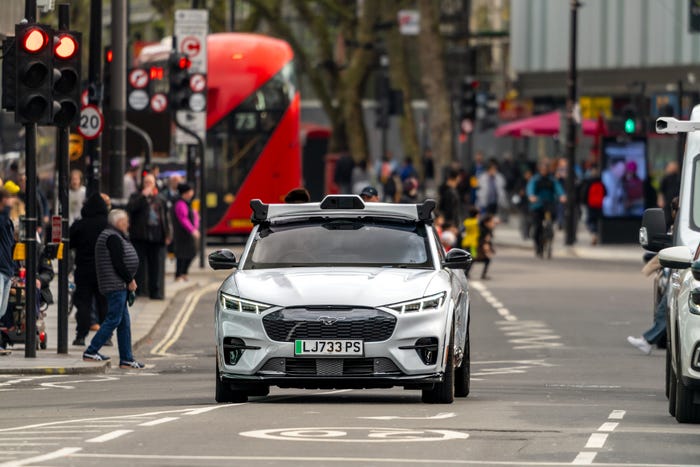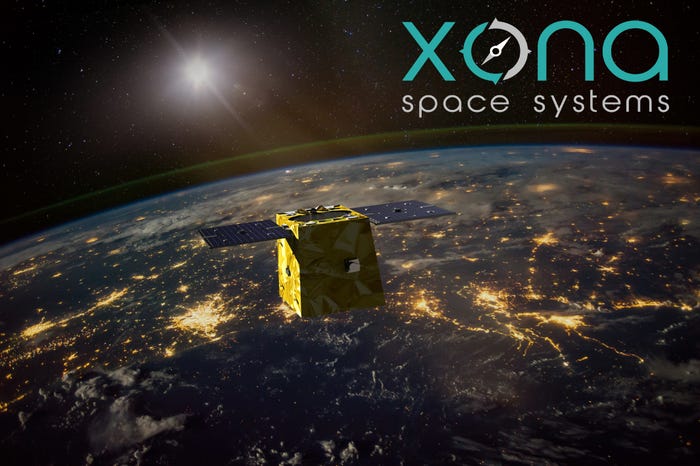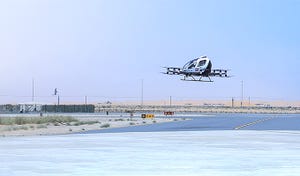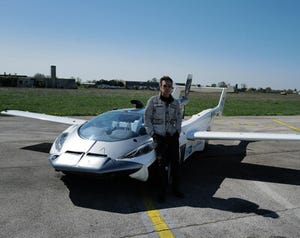Flying Taxi Bought by Air New Zealand; 2026 Commercial Flights
The airline plans to use the electric flying vehicle initially as a cargo service in partnership with New Zealand Post
.jpg?width=850&auto=webp&quality=95&format=jpg&disable=upscale)
Air New Zealand is purchasing an electric aerial vehicle (EAV) from Beta Technologies in Burlington, Vermont,
The airline plans to use the electric flying vehicle initially as a cargo service in partnership with New Zealand Post.
“This is a small but important step in a much larger journey for the airline,” said Air New Zealand CEO Greg Foran. “There is a lot of work ahead of us, but we are incredibly committed, and this purchase marks a new chapter for the airline. Decarbonizing aviation isn’t easy, and we have a lot of work to do. We need regulation. While this aircraft will add to, not replace our existing fleet, it is a catalyst for that next generation aircraft from 2030.”
Beta has two versions of its Alia EAV. One is an electric CTOL (conventional takeoff and landing) vehicle, which is planned for service in 2025, and the other is an eVTOL (vertical takeoff and landing) vehicle, planned for service the following year.
Most EAVs are eVTOLs, which do not require traditional runways since they take off and land straight up and down.
Alia Air New Zealand purchased the CTOL version.
“Air New Zealand is hyper-focused on bringing technologies to scale as quickly as possible to the aviation landscape,” said Beta CEO Kyle Clark. “Over the past year plus of partnership, collaboration and diligence, we’ve seen Air New Zealand’s forward innovation. We are gratified by the airline’s confidence in our technology as a solution that will bring the Alia to market for 2026.”
Beta was recently granted $20 million from the state of New York to expand its operations at Plattsburgh International Airport, from the Empire State Development’s Regional Economic and Community Assistance Program.
The new facility is intended to become the manufacturing and final assembly hub for Beta’s EAV and to create a permanent flight test and EAV delivery center, for final flight testing, vehicle painting and customer delivery.
Beta has orders for its flying vehicles from UPS, United Therapeutics, Bristow, LCI, Blade and Helijet, and has contracts with the U.S. Air Force and Army.
Beta recently was approved for a $169 million loan to finance its net-zero final assembly production facility from the Export-Import Bank of the United States (EXIM).
That was part of EXIM’s Make More in America initiative, estimated to support 400 clean energy jobs in Vermont.
Beta recently opened its manufacturing facility in Vermont for the large-scale production of its electric aircraft.
The 188,500-square-foot facility is located at the Patrick Leahy Burlington International Airport, where Beta plans to build its flying vehicles.
Beta’s Alia vertical and conventional takeoff vehicles are targeted for military and commercial use, including for medical, defense and passenger industries.
Beta has been developing its electric aerial vehicles with numerous aerospace suppliers including Albany Engineered Composites, Advanced Integration Technology, Garmin, Sensata Technologies, Volz Servis and Solvay.
The company also has locations in Plattsburgh, New York, Washington, D.C., Montreal, Canada, Raleigh, North Carolina and Springfield, Ohio.
Beta has partnered with AFWERX, the innovation arm of the U.S. Air Force that leverages the Air Force Research Laboratory for this program.
Beta also recently installed aircraft electric charging stations at Eglin Air Force Base to service the electric flying vehicles there.
Vertiport facilities to manage the takeoff, landing, charging and maintenance of such vehicles are being established by companies including Volatus Infrastructure and Aeroauto Vertiport Development, which has retail showrooms for flying vehicle sales in Florida.
A Department of Defense research center partnered with Beta starting in 2020 to develop electric aviation in the U.S. military market. Beta received an airworthiness certificate for manned flight from the military, with military test pilots flying the vehicles.
The Beta electric charger can charge an electric aircraft in less than an hour, according to the company.
Like what you've read? For more stories like this on flying cars and other emerging technologies, sign up for our free daily email newsletter to stay updated!
Read more about:
Flying CarsAbout the Author(s)
You May Also Like






.png?width=300&auto=webp&quality=80&disable=upscale)
.png?width=300&auto=webp&quality=80&disable=upscale)
